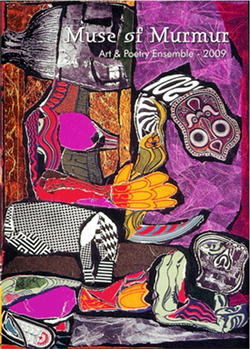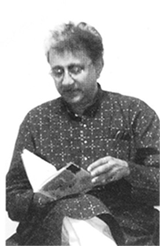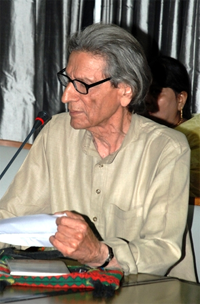|
 Poetry has been read, heard and seen happening at all times. Delhi is one place that they happened to me all together, suddenly and at so many times. Loving is just poetry and many a times I couldn’t find the right emotion, the right word, the right color to express it. Yet poetry survived all these years and Delhi grew up into longer sleepy summer rebellions when sitting at a cafe on the Janpath and just staring at your eyes would still be the right thing to do. The music of Susmit Bose still resounds Delhi, the girls are prettier, your smell and voice pervades and I just want to jump in the crowd and climb the nearest electric pole in Connaught Place, reciting my poems, your poems aloud all at the same time. Poetry has been read, heard and seen happening at all times. Delhi is one place that they happened to me all together, suddenly and at so many times. Loving is just poetry and many a times I couldn’t find the right emotion, the right word, the right color to express it. Yet poetry survived all these years and Delhi grew up into longer sleepy summer rebellions when sitting at a cafe on the Janpath and just staring at your eyes would still be the right thing to do. The music of Susmit Bose still resounds Delhi, the girls are prettier, your smell and voice pervades and I just want to jump in the crowd and climb the nearest electric pole in Connaught Place, reciting my poems, your poems aloud all at the same time.
It’s from this Delhi I received an unspoken surprise. It’s a book, a poetry book, a book of contemporary arts, a book of Hindi poetry all rolled in one. Yes, there was a book somewhere in the late seventies, a book titled Anarchy and the Blue which featured contemporary poetry and art of India. I had it, kept it, treasured it and lost it one fine morning in Gwalior. Muse of Murmur, Art and Poetry Ensemble 2009 gave catharsis to all such aspirations. Its one long period but then it was worth waiting even when it came as a sudden surprise.
 Subroto Bondo is a Management Guru, a professional involved in managing successful business scenarios, teaching, training and corporate culture co existence is also his acumen. He has been a fashion model too. To me, he also happens to be one of the foremost of Indo English poets of contemporary times, in times when Indian writings in English have reached a certain zenith due to easier available publishing tools and the god internet. Subroto Bondo is a Management Guru, a professional involved in managing successful business scenarios, teaching, training and corporate culture co existence is also his acumen. He has been a fashion model too. To me, he also happens to be one of the foremost of Indo English poets of contemporary times, in times when Indian writings in English have reached a certain zenith due to easier available publishing tools and the god internet.
Subroto Bondo is the editor of this highly acclaimed book, Muse of Murmur, Art and Poetry Ensemble 2009. Its a book in gloss brought out from Delhi. People in Mumbai say, Aamchi Mumbai, should I say then Hamari Dilli. Subroto lives in Delhi, breathes Delhi, voices critical concerns on art of Delhi and has written one long poem on Delhi. This book is a publication of Shahar Dilli.
 But let me talk first about its Guest Editor, Keshav Malik. But let me talk first about its Guest Editor, Keshav Malik.
Art Critic and Poet, Keshav Malik received Padma Shri for his contribution to Literature and Arts by the Government of India in 1991. It is indeed a great honour and privilege to have him editing this volume. I have known Keshav Malik from the seventies when his poems were published in international anthologies but primarily in anthologies edited by Pritish Nandy. I remember him from Anees Jung’s Youth Times. I also remember his poem published in Strangertime edited by Nandy during that same period –
To sense what is and what is not of importance
Is of some importance.
Your double in the mirror, for instance
Has little substance
Except a double double in a doting eye's transparence
And there rediscover self anew in a taking tense
(As distinct from the mere mimicking presence).
And be broken your long sleep or trance
In your body's ambience,
A double gives offence.
In Muse of Murmur, he writes
Will is all –
Will all and behind will breath
Then, to breathe through the chisel of the will
working round the clock-
to hew and to put back into shape
the human world’s dead weight.
Keshav Malik’s poetry has always questioned the certain unknown, his poetry parts layers of reclusive thoughts, like someone parting a sun curtain.
Rakshat Puri remains one of the pillars of the Indo-English Poetry Movement. He too lives in Delhi. Once again I go back to the seventies in Nandy’s Strangertime –
On the lake the rain
Brings an explosion of ripples.
Ill luck breaks mirrors.
The rain tears summer
To ribbons and patchwork days
Cover frail autumn.
Then dust walls dry leaves
To the lake nursing a patched
Sky in its cold ruins.
In Muse of Murmur –
Left Behind in Lahore, 1947
Left to its own echoes the house stood
Light brick red. The garden turned to a wood:
Recalled, the house brings back laughter filled days
Rocking logic loose in boyhood ways
Chaos came then in turbulent ways
Came in cloudless dust dimmed days.
Monsoons since then have flung through age bent years
Of Partition sneers, terrorist fears –
Recalled now, home and hearth, left behind
Bring back to an endlessly unstill mind
The presence
Of absence
Signify in memory’s remote recess
All that is now meaningfully meaningless
Left to its echoes, the recalled house now stands
In fading dream that only Time understands.
Rakshat Puri’s poetry looks visibly as an art form, colours flash by and old aromas take shape.
Arundhathi Subramaniam is the face of the new contemporary poetry movement in India. Somehow, she reminds me always of Eunice De Souza. She is India’s Country Editor of the Poetry International Web ( PIW ). I receive regularly on my Outlook Express the latest PIW news and publications. I read the work of Indian poets translated to English or originally written in English. The Poetry Movement in South East Asia is definitely bringing every day new poets and their creativity to light and Arundhathi has this envious and demanding work to choose from many submissions. A similar work is being done by Lisel Jobson for PIW in South Africa.
Sharecropping
She lusted after Dev Anand
I after Imran Khan
On television
Both still sport
Headfuls of black hair
She treads nimbly
Across language
I vowel every now and then
Into mouldering inertias...
Arundhathi’s poetry reflects the new India, questions that one asks oneself, deeply rooted in culture; her poetry forms a bridge in simple circumstances in a fast changing environment.
Kamala Das passed away on 31 May 2009. Subroto Bondo got her permission for her works to be included in this volume. Tonight this Savage Rite is a poetry collaboration between Kamala Das and Pritish Nandy. Brought out in the seventies by Heinemann, this book was republished by Harper Collins and released early this year. In my article, End of a Rite, Kamala Das passes away, I had written -
Kamala Das, a pillar of Indo ' English Literature, an artist and a versatile Malayalam writer has passed away today in Pune. In Kamala Das' death the country has lost a great writer who in many ways was often misread, misunderstood and mistreated.
From her book The Descendants
When I die
Do not throw the meat and bones away
But pile them up
And let them tell
By their smell
What life was worth
On this earth
What love was worth
In the end.
Kamala Das wrote with such passion, her poetry remains iconoclastic, defying norms yet daring you to read. I found her book 'My Story' at the AH Wheeler Book Shop in Gwalior Railway Station. The Autobiography is prose-poetry, like peeping into shadows, a whiff, now here, now gone.
In Muse of Murmur –
Fear
A lidless eye
Day bellowing into day
Without a night between
A noonday sun com at last
To stay...
Substance,
Bereft of shadow,
A scream
A swift knife gleam
Deafens the unwarned
Human ear.
Shakti Chattopadhyay remains a legendary Bengali poet. I remember his very famous poem that became a household utterance in Bengal, Abani Baritey Aacho (Abani, Are you at home? ) Pritish Nandy writes about him in his latest poetry book, Again.
Yes, I am here
But you are gone
So has the magic rhyme...
Pritish Nandy translated this poem of Shakti, published in Muse of Murmur –
Dare to love only once
You will see stones fall from the breasts of fish,
Deep, deep within the river:
Stones, stones, stones
And the water of the river and the seas
Blue stones turning red
Red stones turning blue
Just dare to love only once.
Subroto Bondo writes poetry in Bangla and English. In his own words, he says that Surrealism plays a definite role in his poetry. His epic poem on Delhi borders on to a dimensional aptitude.
Delhi
Swam afar
For its tunnel’s
Womb, where villains
And heroes copied wrong
Ears, happening in ambient sky
A glassbox burned the hopes, knifed
Sinkholes that left the city in scampering lie.
Lanes struggled in sham vengeance...
These are just a few lines from 130 page long poem Metropolis. Subroto Bondo’s work definitely needs to be exhibited in a wider arena involving theatre, art and music.
Arpana Caur’s works are published in the Muse of Murmur. I have chosen her work because I came across her work exhibited during the seventies at the Dhoomimal Gallery in Connaught Place, New Delhi. My close friend, Yusuf, Curator of Bharat Bhawan, Bhopal has mentioned about her works to me a number of times. Her incandescent human figures bursting in colors seem to express the pain and remembrances of different lives.
The art on the cover of the book belongs to noted artist Satish Gujral.
|